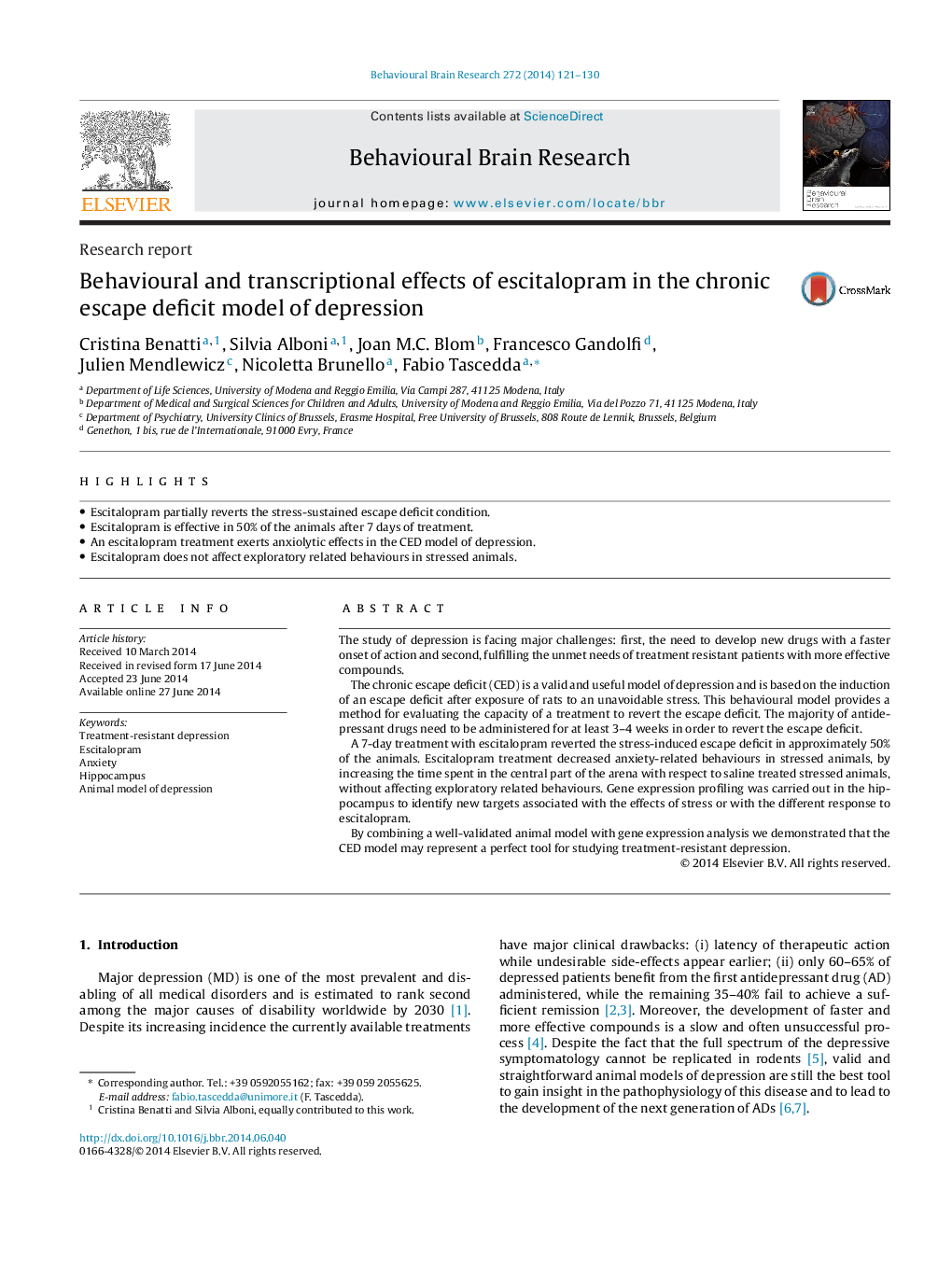| کد مقاله | کد نشریه | سال انتشار | مقاله انگلیسی | نسخه تمام متن |
|---|---|---|---|---|
| 6257485 | 1612960 | 2014 | 10 صفحه PDF | دانلود رایگان |
- Escitalopram partially reverts the stress-sustained escape deficit condition.
- Escitalopram is effective in 50% of the animals after 7 days of treatment.
- An escitalopram treatment exerts anxiolytic effects in the CED model of depression.
- Escitalopram does not affect exploratory related behaviours in stressed animals.
The study of depression is facing major challenges: first, the need to develop new drugs with a faster onset of action and second, fulfilling the unmet needs of treatment resistant patients with more effective compounds.The chronic escape deficit (CED) is a valid and useful model of depression and is based on the induction of an escape deficit after exposure of rats to an unavoidable stress. This behavioural model provides a method for evaluating the capacity of a treatment to revert the escape deficit. The majority of antidepressant drugs need to be administered for at least 3-4 weeks in order to revert the escape deficit.A 7-day treatment with escitalopram reverted the stress-induced escape deficit in approximately 50% of the animals. Escitalopram treatment decreased anxiety-related behaviours in stressed animals, by increasing the time spent in the central part of the arena with respect to saline treated stressed animals, without affecting exploratory related behaviours. Gene expression profiling was carried out in the hippocampus to identify new targets associated with the effects of stress or with the different response to escitalopram.By combining a well-validated animal model with gene expression analysis we demonstrated that the CED model may represent a perfect tool for studying treatment-resistant depression.
Journal: Behavioural Brain Research - Volume 272, 1 October 2014, Pages 121-130
